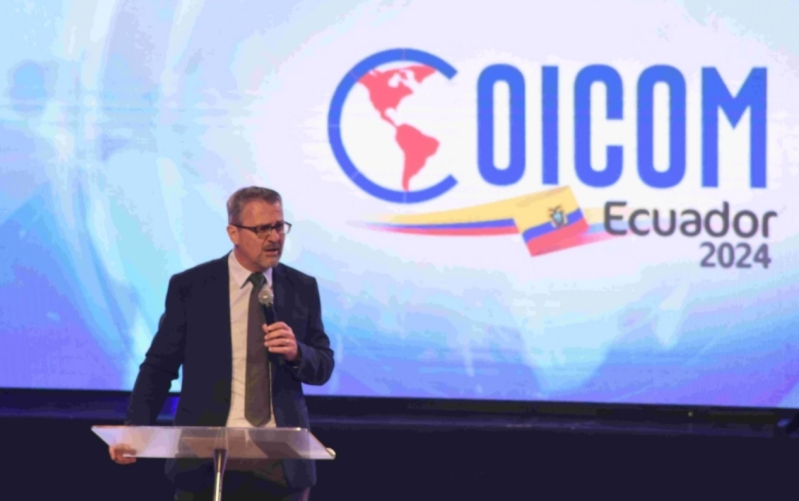
Arnold Enns, president of the Ibero-American Confederation of Christian Communicators and Mass Media (COICOM), issued a strong call to the Church and Christian media: to urgently renew their communication strategies in order to connect with a generation immersed in digital content.
“We're using methods from 60 years ago to reach a digital generation,” said Enns in an exclusive interview with Diario Cristiano Internacional, Christian Daily International's Spanish edition. In his assessment, the Church has gained access to media and platforms like never before, but it is still failing in the most critical area: producing relevant, effective, and mission-centered content.
Communication as an inseparable part of the mission
Enns doesn’t speak from theory—his life is deeply rooted in the history of missions and communication. “My father was a missionary in Paraguay for more than 60 years and used 16mm films to evangelize in public squares,” he recalled.
Those evangelistic campaigns combined emerging technology with the gospel message: “Communication was essential. Jesus was the greatest communicator in history. He used parables, stories... He knew how to connect.”
That missionary legacy shaped his perspective: media are not simply tools for informing, but strategic channels for mission mobilization.
Today, that vision must adapt to the digital environment, according to Enns. “People live on social media. We need to be there too—but with content that not only entertains or informs, but transforms and calls people to action.”
From technological limitation to content urgency
Enns compared the current landscape with the early days of COICOM more than three decades ago: “Back then, we had no access to radio or TV stations. Today we do. The problem is no longer technology, but creativity, intentionality, and connecting with the heart of the audience.”
He criticized the fact that many ministries continue operating as they did before the pandemic, failing to understand the deep changes in consumption habits, language, and values of the new generation.
“What worries me is that we’re still using outdated vehicles. We're not reading cultural codes correctly. And that distances us from those who need the message the most.”
A media-driven generation
For Enns, the challenge is not technical, but spiritual and strategic. The message of the cross has not changed, but the formats for delivering it must be updated. “How do we speak of hope, identity, or salvation to an audience saturated with images, speed, and stimuli? Only with content that speaks their language.”
He called on Christian communicators to leave their comfort zones, get trained, and collaborate. “This generation is connected all the time. The question is: are we there with a message that makes a difference? It’s no longer enough to replicate last-century models. The Kingdom needs creativity and boldness.”
COICOM (Ibero-American Confederation of Christian Communicators and Mass Media) was founded over 30 years ago to connect, train, and equip Christian communicators across the region. It has been a key platform in building networks of radio, television, print, and internet with a missionary focus.
Currently, under the leadership of Enns, the organization promotes continental gatherings, workshops, and innovation spaces aimed at putting communication at the service of the global mission. “There is no evangelism without communication. And there’s no effective communication without listening to the audience. We must re-learn how to communicate in order to disciple,” he concluded.
Originally published by Diario Cristiano, Christian Daily International's Spanish edition.





